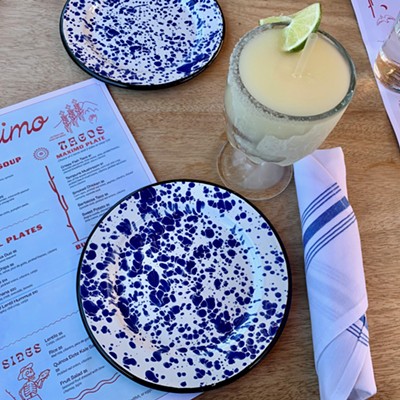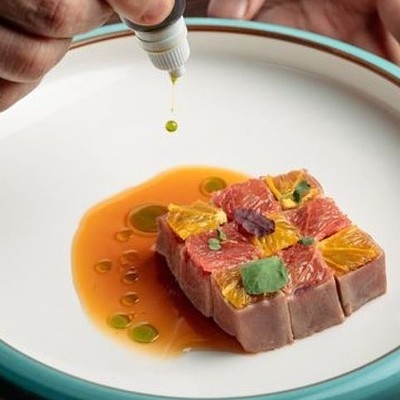Since chef/owner Morteza "Morty" Parsa opened Kasra Persian Grill in 1999, the Westchase restaurant has become one of Houston's best-known Persian restaurants, winning numerous accolades in the process (including a 2007 Best of Houston award from this publication). EOW recently sat down with Parsa to discuss his family business.
EOW: The Kasra website notes that your family has served Persian cuisine for generations. How many generations?
MP: As far as I know, I'm the fourth generation. And my son Adam finished school last year and has decided to join the restaurant, so he'll be the fifth generation. My father's restaurant, called Afshar, was established 80 years ago in Tehran. My father bought the restaurant from his uncle, who had in turn taken it over from his father. (Points to a framed newspaper clipping on the wall in Farsi.) That's an article from an Iranian newspaper about my father's restaurant. It's one of the oldest restaurants in that part of Tehran; when people go to the area, they go to that restaurant. My father passed away three years ago, and now my brother's taking care of the restaurant. On my dad's side of the family, almost everyone is either in the cattle business or the restaurant business.
EOW: Did you work in your father's restaurant growing up?
MP: Of course. Starting when I was 11 or 12 years old, I would work during the new year's holiday, summer holiday, and on weekends. I was the oldest son, and so my father taught me the business. I started out just as a helper: cleaning the tables, washing the glasses. Then when I was 15 I started cleaning the beef and helping with food preparation.
EOW: What's the first dish you learned how to make?
MP: Our most popular dish was the ground beef kebab (kubideh), which would be like a hamburger over here. Everyone eats it as an afternoon snack. That's the first dish I learned how to make.
EOW: So you had a feeling you'd end up in the restaurant business.
MP: Actually, my father sent me to England to attend college, and in 1979 I transferred over to Texas Southern. I finished school and got married - my wife is American - and with the revolution happening in my country I stayed here. I was never the type of guy who wanted to sit in an office; I wanted to be with the people. My wife said, "Why don't you open a restaurant? It's your family business." And so in 1999 I took over this place. Before then it had been a Persian restaurant named House of Kebab, but it wasn't run well. The owners used to be in the pizza business and didn't know anything about Persian food. Our first three or four years were really hard, because the previous owners had a poor reputation for food and service.
EOW: What did you study in college?
MP: Civil engineering. Here in Houston, during the day I was going to school, and at night I was working at Shanghai Red's, by the Ship Channel. I started as a barback, then moved up to bartender, then waiter. I continued to work there after I graduated, and stayed for about 14 years. In the US, I've always been in the restaurant business. At some point I was thinking about going into the fast food business and buying a Schlotzsky's franchise. But that didn't happen. Going back to my wife's advice, she also told me, "Hey, you've been away from Iran for a few years. Don't you think before you open a Persian restaurant you should go visit your family?" And so I went back and forth between here and Tehran for three or four years, relearning how the restaurant was run and figuring out how to square the two cultures.
EOW: How does the menu here differ from the menu at your father's restaurant in Tehran?
MP: The food on my menu is the food that's really popular in Tehran. I don't have too many items on my menu, because that way I can control the quality. If you have 30 different items on the menu, one of them's going to get messed up. Here's a simple example. My lunch special is a couple dollars cheaper than the same item on the dinner menu, but the portion is the same size. How come? If I want to serve a smaller portion at lunch, then I have to prepare a smaller kebab or shish-kebab, and if I don't sell enough at lunch, then what do I do? Keep it for the next day? No. I don't want to do that. I'd rather have one size and know that it will be sold out by dinner, so that the next day everything will be fresh again.
EOW: That's an interesting efficiency argument.
MP: This way my customers are happy and the food is fresh. I believe in advertising, but I believe even more in word of mouth. In the 12 years I've been here, the main thing that brings me business is word of mouth.
Tune in tomorrow for more with Chef Parsa.
Follow Eating Our Words on Facebook and on Twitter @EatingOurWords





